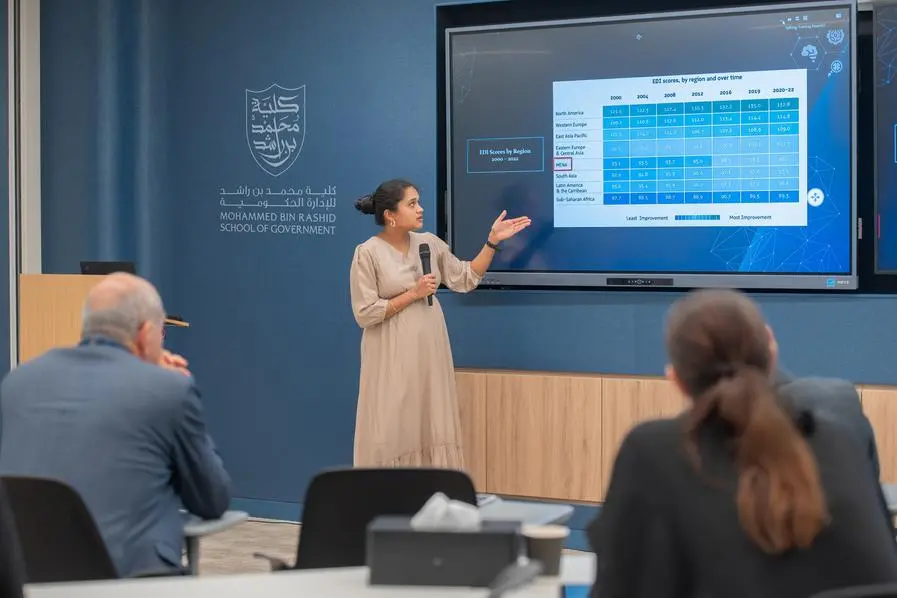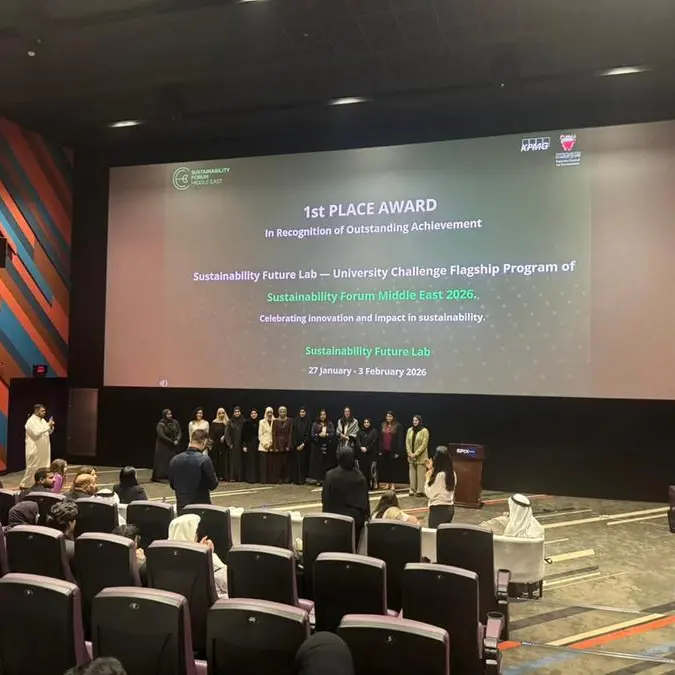PHOTO
- The event aims to explore the transformative potential of the Fourth Industrial Revolution in the Gulf Cooperation Council (GCC) region.
- As part of its research agenda to foster economic policy impact the MBRSG will also organize the First Global Conference on Economic Diversification on 31 October and 1 November 2024.
Dubai, UAE – Hosted by the Mohammed Bin Rashid School of Government (MBRSG), the Economic Research Forum concluded with its second and final day at MBRSG’s new headquarters in City Walk, Dubai, under the theme ‘The Potential of the Fourth Industrial Revolution on the Economic Transformation of GCC Countries’.
Day two began with a roundtable discussion titled ‘Smart Factories in GCC Countries: Facts, Trends, and Potential’, where speakers sought to examine the industrialisation of the GCC and the potential of Industry 4.0 to facilitate the emergence of these countries as industrialised nations, particularly in light of recent initiatives, such as Saudi Arabia’s Vision 2030 and the ‘We the UAE 2031’ vision. The session was moderated by Dr. Adel Ben Youssef from Université Côte d’Azur and the Economic Research Forum.
Following an introduction talk by Raimund Klein from the International Centre for Industrial Transformation (INCIT), the roundtable featured three lead commentators: Rafik Feki from the United Nations Industrial Development Organisation (UNIDO); Dr. Shripard Lale, Director at DigiSignals India Private Limited company, and Dr. Antonio Feraco from the Abu Dhabi Department of Economic Development (DED).
Next on the agenda was a presentation by Keertana Subramani from MBRSG, where she showcased the findings of MBRSG’s 2024 Global Economic Diversification Index (GEDI), with focus on the impact of digital trade on economic diversification.
Day two continued with a session titled ‘Skills and Impacts on the Labour Market’, moderated by Prof. Christian Haefke from New York University Abu Dhabi (NYUAD). The objective of the session was to examine the pivotal shifts that have emerged in the labour market as a consequence of implementing Smart Manufacturing and Industry 4.0 technologies in GCC countries, as well as to analyse how the requisite skillsets are evolving as a consequence.
Dr. Adel Ben Youssef from Université Côte d’Azur and the Economic Research Forum returned to deliver the introduction talk for the session, before leaving the discussion to the two lead commentators: Dr. Emmanuelle Walkowiak from RMIT University in Australia, and Dr. Simone Vannuccini from Université Côte d’Azur in France.
At the conclusion of the event, the recommendations and key takeaways from the studies and research papers presented by experts taking part in the Economic Research Forum over the course of two days were revealed.
The Economic Research Forum presented a GCC High-Level Policy Seminar that strived to provide a comprehensive understanding of how Fourth Industrial Revolution technologies are being adopted and the implications they are expected to have across GCC countries, exploring a wide range of topics from smart factories and smart cities to entrepreneurship and the rapidly evolving landscape of the labour market.
The Mohammed Bin Rashid School of Government hosted the event in collaboration with the Economic Research Forum over the course of two days on 15-16 October 2024, as part of its efforts to host and organise a series of notable events throughout the month of October, in line with its new strategy to provide a leading platform for research, study, and exploring ways to empower future leaders and hone their skills.
MBRSG will also be organising the First Global Conference on Economic Diversification on 31 October and 1 November 2024, which aims to address economic policy and research outcomes related to economic diversification globally with contributions from global through leaders and influential international organizations.




















